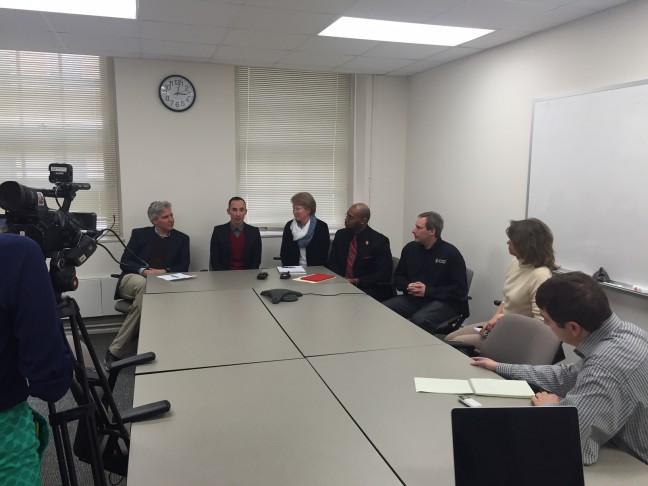University of Wisconsin-Madison officials held a press conference Thursday to address the Jan 26 hate crime of students taping swastikas and a picture of Hitler onto a Jewish student’s door in Sellery Hall.
Joshua Johnson, chair of the Hate and Bias Incident Team, said authorities knew the identity of the perpetrator from the beginning and dealt with that person through the student code of conduct.
Unfortunately, he said, incidents where individuals are targeted for their race, orientation or religion are more common than most students think.
“These types of things happen regularly,” Johnson said. “We like to pretend college campuses are these safe progressive meccas, but realistically we deal with the same kind of hate as other places.”
After a Facebook post started gaining attention, UW-Madison officials put out a statement informing students of resources.


The Hate and Bias Team works to respond to hate crimes and launch investigations when the perpetrator remains unknown, Johnson said. In most cases, Johnson said he deals with slurs shouted in public.
Johnson, who has worked in a similar role at four other campuses, said he has dealt with several cases of identity-motivated physical violence. While he has yet to encounter such an instance in his year and a half at UW-Madison, he said the campus still has a lot to learn, even from other UW system schools. In particular, Johnson said UW-La Crosse has been very effective and transparent in dealing with hate and bias incidents, but their small size is an advantage.
https://twitter.com/Teymoreorless/status/700425618069004288
Immediately after the swastika incident, UW-Madison officials sent an email to all Sellery residents explaining the behavior was unacceptable. The letter also contained information about ways students may report instances in which they feel targeted because of their identity and information on a forum where students can ask questions and voice their frustrations.
Multiple instances of vandalism on campus single out racial identities
Greg Steinberger, executive director of UW-Madison Hillel, said in the immediate aftermath of the incident, only those within the Sellery community approached him with complaints. As news and images of the incident spread on Facebook, he said he has received more responses from local and national communities.
Steinberger said this incident was a particularly shocking one in his 20 years working on college campuses. He said arriving at one’s home and seeing hateful images is naturally “gut wrenching.”
Dean of Students Lori Berquam said it is important for the campus community members to be supportive of each other in the wake of such an incident.


